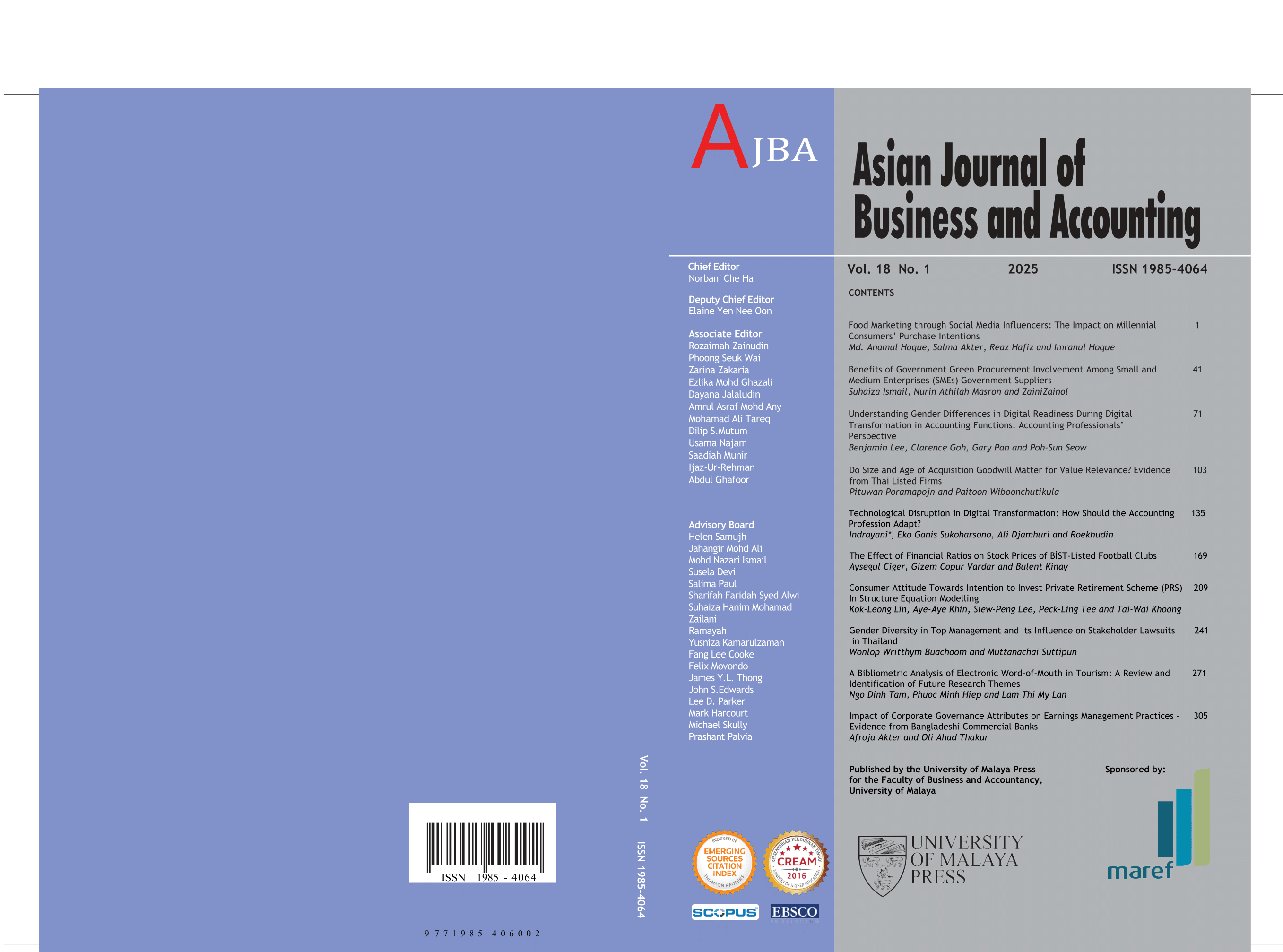A Bibliometric Analysis of Electronic Word-of-Mouth in Tourism: A Review and Identification of Future Research Themes
Main Article Content
Abstract
Manuscript type: Research paper
Research aims: The study aims to analyse the bibliometric method to
identify the most influential authors, popular research themes, emerging
research themes, and keyword groups that have been heavily utilised
in previous studies on electronic word-of-mouth (eWOM) in the field of
tourism. This study also suggests appropriate themes for future research.
Design/Methodology/Approach: The study gathered data from Scopus
using the keywords ‘electronic word of mouth’, ‘eWOM’, ‘tourist’,
‘traveller’, and ‘visitor.’ A total of 672 articles was collected initially. After
filtering out articles that were identical or unrelated to the research topic,
331 articles remained in the data. The study uses a bibliometric method,
employing three primary techniques: co-citation, bibliographic coupling,
and co-word.
Research findings: The findings reveal three clusters using the co-citation
technique, five clusters using the bibliographic coupling technique, and
six clusters using the co-word technique. Based on the themes and the
keywords used in the analysis techniques, the researchers propose three
future research directions, including visual cues, algorithmic word of
mouth (aWOM), and eWOM in medical tourism.
Practical Implications: This study contains great practical value since
the findings reflect the popularity of the research themes and provide
potential avenues for further inquiry. Future researchers can use this
result to tailor their research topics accordingly.
